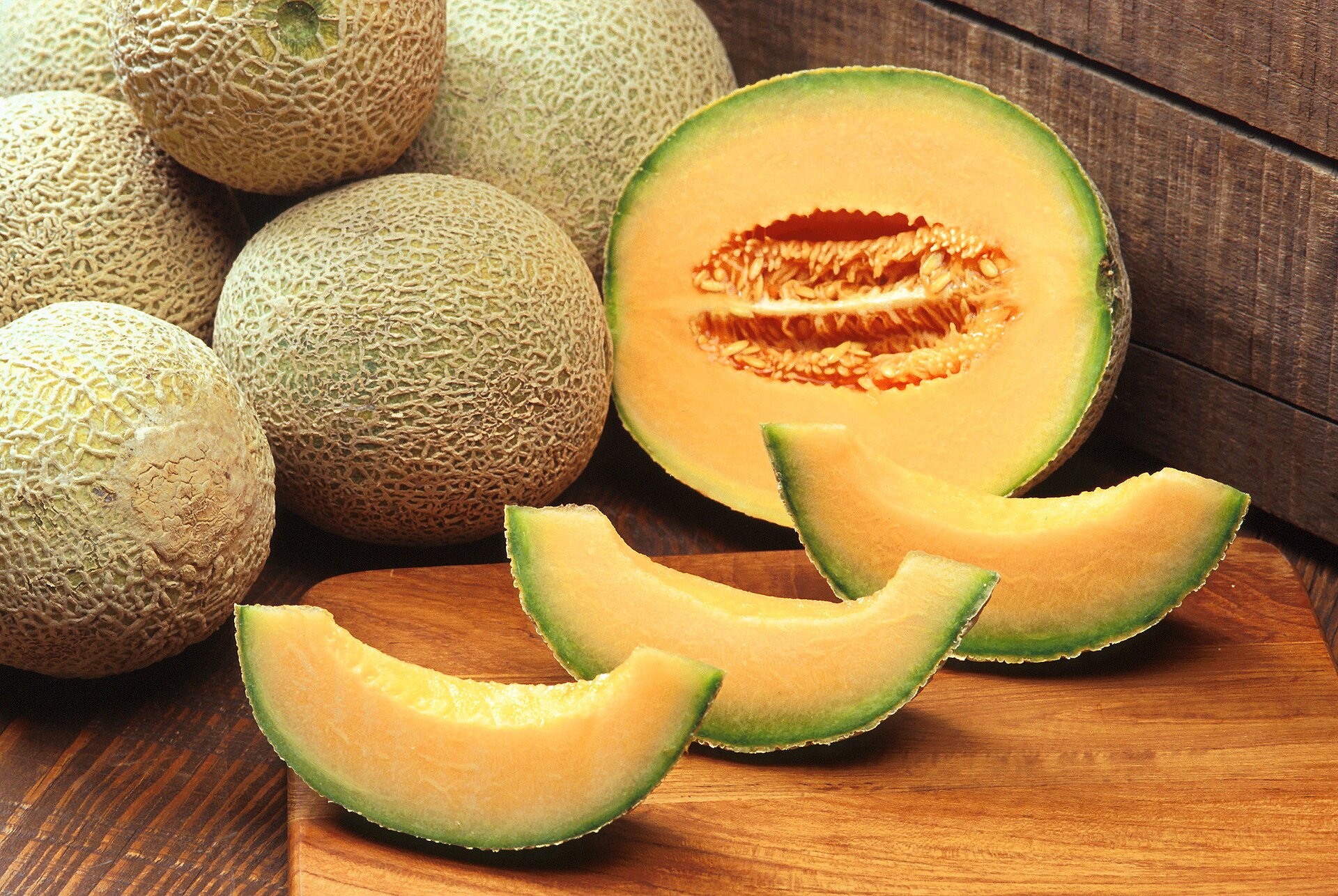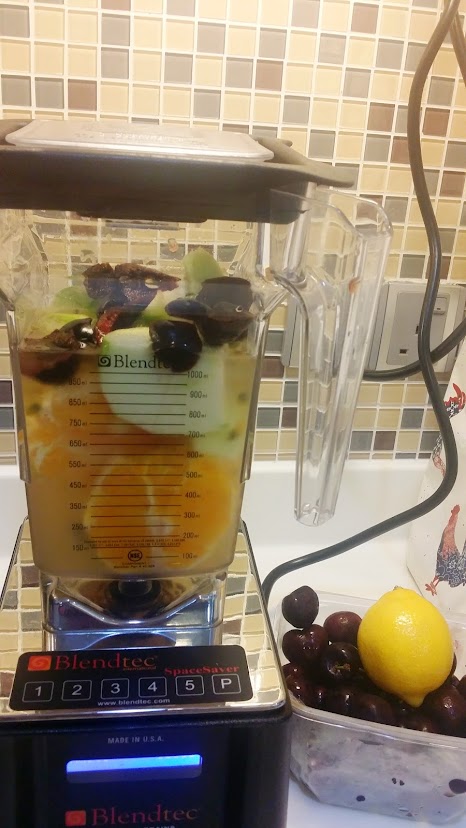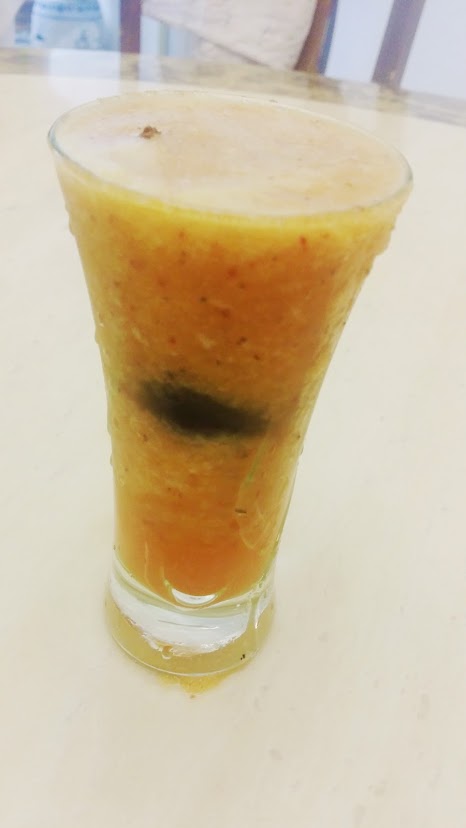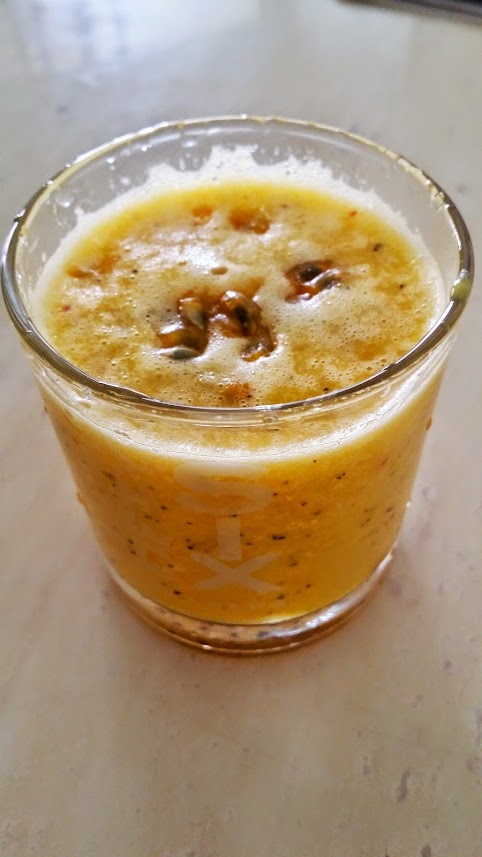Avocado is the darling in the kitchen of our house. It is the most preferred fruit in our house. Whenever there are unripened avocados in the kitchen, our girls will keep checking on them – several times in a day, hoping to see a change in color and softness in the avocados. Finding a ripe avocado at the supermarket is hit or miss, but you can ripen them yourself at home, easily, with ripe bananas and apples!

Ripe bananas and apples release a lot of ethylene, the hormone that triggers ripening in mature fruit, so placing one in a closed paper bag with your under-ripe avocados will speed up the process. I usually just place the hard avocados in the same fruit basket with the bananas, apples and oranges (in room temperature) and they will usually soften in 2-3 days.
Our girls love ripe avocados on toast – either thinly sliced or mashed into a smooth paste. I love eating ripe avocados as it is or make them into avocado smoothie with low fat milk. My next project is to make avocado guacamole.

Also known as an alligator pear or butter fruit, the versatile avocado is the only fruit that provides a substantial amount of healthy monounsaturated fatty acids (MUFA). Avocados are a naturally nutrient-dense food and contain nearly 20 vitamins and minerals.
So what, exactly, makes this pear-shaped berry (yes, that’s right!) such a super food?
Avocados are a good source of B vitamins, which help you fight off disease and infection. They also give you vitamins C and E, plus natural plant chemicals that may help prevent cancer.
Avocados are low in sugar. And they contain fiber, which helps you feel full longer. In one study, people who added a fresh avocado half to their lunch were less interested in eating during the next three hours.
Avocados are a good source of pantothenic acid (vitamin B5), vitamin K and fiber, which aids digestion and helps maintain regularity. Additionally, avocados are high in magnesium, phosphorus, iron and potassium, containing even more potassium per gram than bananas, according to the New York University Langone Medical Center.
Fresh avocados contain lycopene and beta-carotene, which are important carotenoid antioxidants. The highest concentration of these antioxidants is located in the dark green flesh closest to the peel, according to the California Avocado Commission. Antioxidants help reduce cell damage.

The Skinny on the Fat and Calories
Avocados are high in fat. But it’s monounsaturated fat, which is a “good” fat that helps lower bad cholesterol, as long as you eat them in moderation.

Health Benefits of Avocados
Heart
Avocados are high in mono- and polyunsaturated fats, which may help reduce blood cholesterol levels and decrease risk for heart disease.
High levels of the amino acid homocysteine are associated with a higher risk of heart disease, but the vitamin B6 and the folic acid found in avocados can help regulate it.
A seven-year study published in 2013 in Nutrition Journal found that avocados were associated with a reduced risk of metabolic syndrome, which refers to a group of symptoms shown to increase the risk of stroke, coronary artery disease and diabetes.
Anti-inflammatory agent
Avocados have great anti-inflammatory properties, phytosterols, carotenoid antioxidants, omega 3 fatty acids and polyhydroxolated fatty alcohols. They can help relieve rheumatoid arthritis and osteoarthritis.
Lowering cholesterol
Avocados may help not only lower bad cholesterol, they may also increase levels of good cholesterol. A 1996 study in the journal Archives of Medical Research found that patients with mild hypercholesterolemia (high cholesterol) who incorporated avocados into their diet for one week had a 22 percent decrease in bad cholesterol and triglycerides and an 11 percent increase in good cholesterol. Avocados also improved cholesterol for people who already had good lipid levels, but were shown to be especially effective in those with mild cholesterol problems. Avocados can help in this way because of their high amount of the beta-sitosterol compound, which is associated with lowering cholesterol.
Regulating blood sugar
According to Reader’s Digest, avocados’ high levels of monounsaturated fats can help stop insulin resistance, which helps to regulate blood sugar levels. Furthermore, the soluble fiber in avocados can help keep blood sugar levels steady. In comparison to other fruits, the low carb and sugar levels in avocados also help maintain blood sugar.
Regulating blood pressure
Avocados’ high levels of potassium can help keep blood pressure under control. The American Heart Association reported that potassium helps regulate the effects of salt, which can increase your blood pressure.
Vision
According to Avocado Central, the website of the Hass Avocado Board, avocados are an excellent source of the carotenoid lutein, which reduces the risk of macular degeneration and cataracts.
Immune system
Glutathione is a powerful antioxidant associated with immune system health. A 2000 report in the journal Proceedings of the Nutrition Society stated, “The immune system works best if the lymphoid cells have a delicately balanced intermediate level of glutathione.” Avocados are a good source of this substance, according to American National University.
Pregnancy and preventing birth defects
According to the California Avocado Commission, avocados are a great choice for moms-to-be. Avocados contain a significant amount of folic acid, which is essential to preventing birth defects like spina bifida and neural tube defects.
Cancer
Avocados have been shown to reduce the risk of certain cancers, including cancers of the mouth, skin and prostate. This is due to the unusual mix of antioxidant and anti-inflammatory characteristics. Furthermore, a 2007 study in the journal Seminars in Cancer Biology found that the phytochemicals in avocados encourage cancer cells to stop growing and die.
Digestion
The fiber in avocados helps keep digestion on track, encouraging regular bowel movements, healthy intestines and a healthy weight, according to the Mayo Clinic.
Skin
The vitamin C and vitamin E in avocados help keep skin nourished and glowing, according to the Linus Pauling Institute at Oregon State University. Avocado and B12 cream may be useful in treating psoriasis, according to the University of Maryland Medical Center.
Health risks
As with many other fruits, avocados’ primary risks are related to overconsumption. Consuming too many avocados may lead to weight gain because of the fat content, even though it is an unsaturated fat. It can also lead to nutritional deficiencies, since fat is digested slower and leaves you feeling fuller longer than other nutrients.
Additionally, avocado allergies, while uncommon, do exist. They are typically associated with latex allergies, according to the Mayo Clinic. Symptoms include a stuffy nose, wheezing, coughing and edema. If you experience any of these symptoms after eating an avocado, try cutting the fruit out of your diet to see if the symptoms disappear. If they persist or are severe, consult a doctor.





















